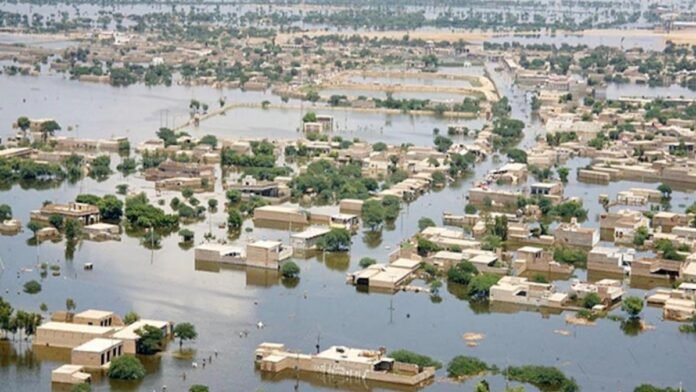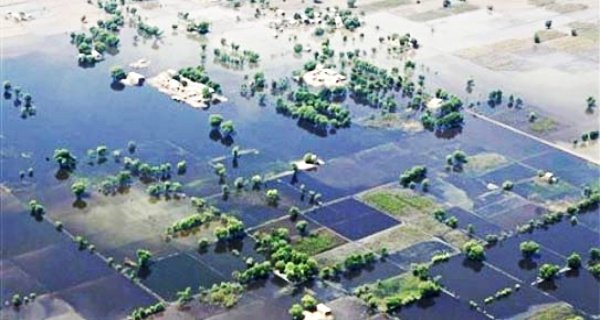
ISLAMABAD: Farmers in Pakistan are still counting their losses from the devastating floods that hit the country. This time in three decades in Pakistan, one-third of the area is submerged due to the highest rainfall and melting of glaciers. Sindh and Balochistan provinces have been hit the hardest by the floods. Ashraf Ali Bhanbro, a farmer from Sindh province, said, “We have gone back 50 years because of the floods.” wasted.
More than 30 million people have been affected by floods caused by record monsoon rains and one of the worst affected areas is Sindh in the south of Pakistan. The mighty Indus River divides the Sindh province into two halves, on whose banks agriculture has flourished with records of irrigation systems dating back many centuries. The flood waters are receding in most parts of the country, but in many districts in the southern part of Sindh province, the water is still not receding. About five lakh people displaced by the floods are living in relief camps.
Sindh’s problem is twice that of other provinces. The province was completely inundated by record rainfall locally, but there is currently no place to drain that water as the Indus river already has excess water and is in spate from tributaries to the north. . Not only this, the banks of the river have broken in many places and the water stream has flowed out. “It rained continuously for 72 hours at a time,” Bhanbro said.

Ashraf Ali further said, ‘It was spent on fertilizers and pesticides… we do not include the profit, which could have been much higher as the crop yield was bumper.’ The National Disaster Management Authority said on Friday that 1208 people lost their lives due to floods caused by record monsoon rains. He told that among those who died, 416 are children and 244 are women. According to him, 6082 people were also injured in flood-related incidents.
Unless flood-hit fields are drained, farmers like Bhanbro will not be able to plant winter wheat – which is vital to the country’s food security. On his farm in Sammu Khan village, about 40 kilometers (25 mi) northeast of Sukkur, he said, “We have a month. If water is not released during that period, there will be no wheat crop.




















































